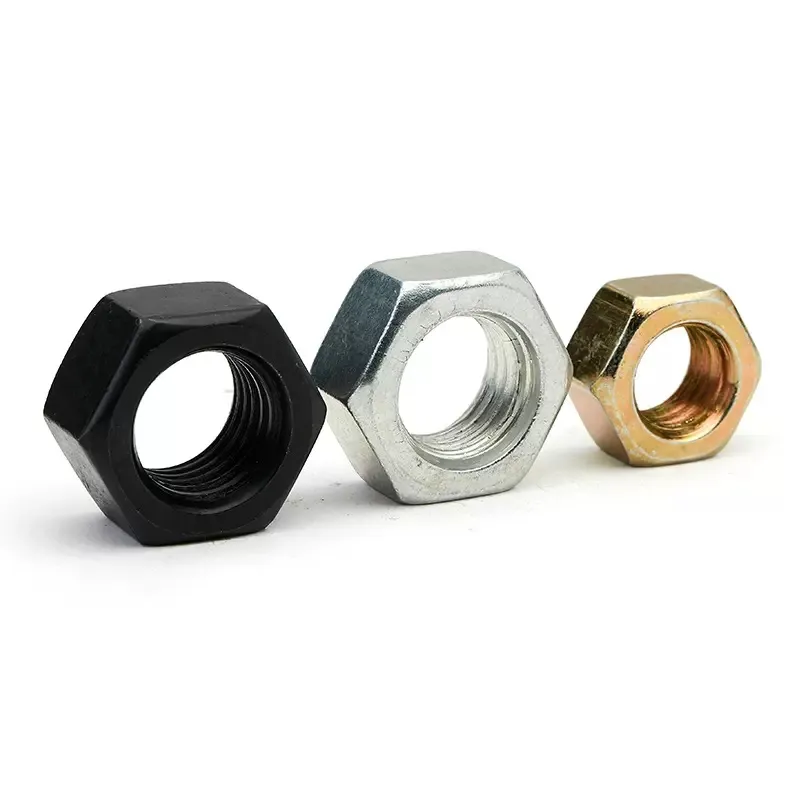

Self-Drilling Screws Designed for Use with Corrugated Metal Roofing and Siding
Dec . 18, 2024 19:13 Back to list
Self-Drilling Screws Designed for Use with Corrugated Metal Roofing and Siding
Self-Tapping Screws for Corrugated Metal An Essential Guide
When it comes to constructing structures using corrugated metal, the choice of fasteners is critical. Among the various options available, self-tapping screws have emerged as a popular choice due to their efficiency and effectiveness. This article will explore the importance of self-tapping screws for corrugated metal, their types, applications, and tips for proper use.
Understanding Self-Tapping Screws
Self-tapping screws are specially designed fasteners that can create their own hole as they are driven into the material. This unique characteristic makes them particularly advantageous for applications where precision and speed are paramount. They eliminate the need for pre-drilling, which not only saves time but also reduces labor costs.
In the context of corrugated metal, self-tapping screws are an ideal solution for a variety of reasons. Given the nature of corrugated sheets, which are often used in roofing, siding, and various structural applications, the ability to securely fasten materials without additional preparation is invaluable.
Types of Self-Tapping Screws
There are several types of self-tapping screws that are commonly used with corrugated metal
1. Hex Head Self-Tapping Screws Known for their strength and ease of installation, hex head screws are often used in roofing applications. Their head design allows for a wrench or socket to be applied, making them easier to tighten.
2. Pan Head Self-Tapping Screws These screws have a rounded head and are used where a flatter appearance is desired. They are suitable for applications that require low-profile fastening.
3. Truss Head Self-Tapping Screws With a wider head and a low profile, truss head screws distribute weight more evenly and prevent pull-through in softer materials. They are suitable for different corrugated metal gauges.
4. Washer Head Self-Tapping Screws These screws incorporate a built-in washer, providing an added level of sealing and support. This is particularly useful in roofing applications, where weatherproofing is essential.
5. Screws with Sealing Washers These screws are designed with a rubber or neoprene washer that creates a waterproof seal when tightened. This feature is crucial in roofing and other outdoor applications, providing protection against leaks.
Applications of Self-Tapping Screws
self tapping screws for corrugated metal

Self-tapping screws are used in various applications involving corrugated metal
- Roofing They are commonly used to attach corrugated metal panels to roofing decks and frames. Their ability to maintain a tight seal is vital for preventing water infiltration. - Siding In building constructions, self-tapping screws provide a reliable method to secure corrugated siding, enhancing structural integrity and durability.
- Fencing These screws are also used in securing corrugated metal sheets used for fencing, ensuring stability and longevity.
- Metal Buildings In the construction of metal structures, self-tapping screws are commonly employed to join metal components, providing a robust solution that withstands various environmental conditions.
Tips for Proper Use
To ensure the effectiveness of self-tapping screws in corrugated metal applications, consider the following tips
1. Choose the Right Size Selecting the appropriate length and diameter is crucial. The screw should penetrate through the corrugated metal and into the substrate sufficiently for a strong hold.
2. Use a Drill with Adjustable Speed A variable-speed drill can help control the speed at which the screw is driven, reducing the risk of stripping the screw or damaging the metal sheet.
3. Pre-Drill if Necessary While self-tapping screws are designed to eliminate the need for pre-drilling, in certain instances, it may be beneficial to create a pilot hole, especially in harder materials or thicker gauges.
4. Secure a Good Seal When installing screws in roofing, ensure that any sealing washers are appropriately positioned to prevent water leaks.
5. Inspect Regularly Regular inspection of fastened components can identify issues like corrosion or loosening, allowing for timely maintenance.
Conclusion
Self-tapping screws play a pivotal role in the construction and installation of corrugated metal structures. Their ability to provide a secure, efficient, and weather-resistant fastening solution makes them indispensable for various applications. By understanding the different types of self-tapping screws and adhering to best practices, builders can ensure the longevity and durability of their metal constructions. Whether for roofing, siding, or other applications, self-tapping screws remain a top choice for both professionals and DIY enthusiasts alike.
Latest news
-
High-Strength Hot-Dip Galvanized Bolts-Hebei Longze|Corrosion Resistance&High Strength
NewsJul.30,2025
-
Hot Dip Galvanized Bolts-Hebei Longze|Corrosion Resistance&High Strength
NewsJul.30,2025
-
Hot Dip Galvanized Bolts - Hebei Longze | Corrosion Resistance, High Strength
NewsJul.30,2025
-
High-Strength Hot Dip Galvanized Bolts-Hebei Longze|Corrosion Resistance, Grade 8.8
NewsJul.30,2025
-
Hot Dip Galvanized Bolts-Hebei Longze|Corrosion Resistance,High Strength
NewsJul.29,2025
-
High-Strength Hot Dip Galvanized Bolts - Hebei Longze Metal Products Manufacturing Co., Ltd.|corrosion resistance&high strength
NewsJul.29,2025

